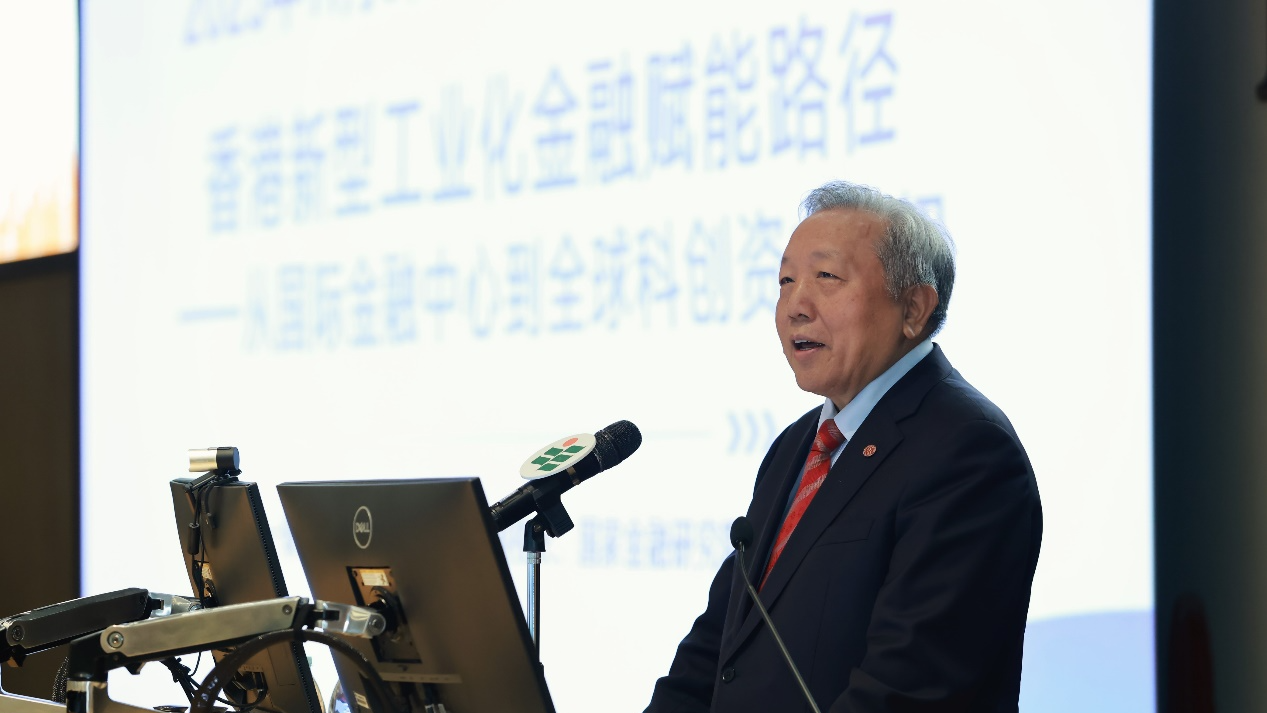
Hong Kong should upgrade and leverage its financial strengths to steer capital toward innovation and technology, in a bid to seize the trend of new industrialization, as the Fourth Industrial Revolution unfolding worldwide is reshaping global value chains through technological breakthroughs, experts and industry insiders said.
In its drive to transform from a conventional financing platform to a nexus for innovation capital, Hong Kong is urged to build a well-integrated, multitiered capital market, and deepen its financial ties with the Chinese mainland.
The remarks echoed the Recommendations of the Central Committee of the Communist Party of China for Formulating the 15th Five-Year Plan for National Economic and Social Development, adopted at the fourth plenary session of the 20th CPC Central Committee in late October.
READ MORE: Partnership to boost Hong Kong’s tech hub ambition
The document calls for efforts to “consolidate and enhance Hong Kong’s status as an international financial center” and to “support it in developing into an international innovation and technology center”.
Hong Kong’s new industrialization is not a return to traditional manufacturing, rather, it represents the construction of a new industrial ecosystem with technology, capital, and services at its core, and marked by “high-end, integrated, and international”, Wu Xiaoqiu, former vice-president of Renmin University of China and dean of RUC’s National Academy of Financial Research, said at a lecture jointly hosted by RUC and the Education University of Hong Kong on Monday.
The lecture was part of a series launched by RUC in 2023 to carry forward the spirit of the Shaanbei Public School, the university’s predecessor, and to offer accessible interpretations of major theoretical and practical issues. The EdUHK session marked the series’ debut in Hong Kong.
“Hong Kong stands at a historical crossroads,” Wu said. The rise of deglobalization and turbulence in global trade have posed challenges to the city that has long thrived on open and free markets.
In this context, Wu said Hong Kong must answer the question — how to harness its financial prowess to capture the dividends of future industries, and turn global industrial transformation into an engine for sustainable growth and sharper competitiveness in capital markets.
According to Wu, Hong Kong is well placed to achieve these aims. The Hong Kong Stock Exchange has ranked first globally in IPO fundraising for seven of the past 14 years, showing the city’s ability to channel its financial “lifeblood” into high-end manufacturing and advanced technology, the economist said.
He added that an expanding web of cross-border investment channels between Hong Kong and the mainland, including equities, bonds and wealth-management products, has supported both markets.
To make financial tools more effective in supporting innovation and technology, Wu said that Hong Kong should build a full-cycle financing chain from angel and venture capital to private equity and IPOs, so as to back technology firms across all stages of growth.
Deng Weishen, a senior economist for Asia and China at UBS, says that ties between Hong Kong and the mainland serve a critical part of the city’s finance-enabled innovation. “Hong Kong and the (whole) Guangdong-Hong Kong-Macao Greater Bay Area probably have the best combination of financial and technology innovation,” Deng said in a written response to China Daily.
Hong Kong has been one of the world’s most important financial centers, and the Greater Bay Area is home to many of the most innovative companies, he added.

A growing number of technology firms in the Greater Bay Area are rushing to commercialize their technologies and scale up businesses. “Financial connectivity between Hong Kong, the premier financial market in the region, and the mainland is critical for their fundraising,” said Kenny Shui, vice-president of Our Hong Kong Foundation and executive director of the thinktank’s Public Policy Institute.
In 2023, the Hong Kong Exchanges and Clearing introduced listing rules Chapter 18C, opening the door for pre‑revenue specialist technology companies to go public. Shui said that nine enterprises, all from the mainland, have filed for listings under Chapter 18C as of June this year, the highest number since the rules took effect.
FreightAmigo, a digital supply-chain finance platform that completed its Series-A funding in Hong Kong, has firsthand experience of how finance and technology reinforce each other.
READ MORE: Chinese tech firm listings influx boosts HK capital market
Under Project CargoX, a Hong Kong Monetary Authority-led initiative for a digital trade finance eosystem, FreightAmigo is digitizing cargo data and linking with the HKMA’s Commercial Data Interchange to build a seamless, data‑driven network that simplifies trade finance.
This move allows financial institutions to monitor cargo movements in real time, reducing risk and speeding up credit assessment and loan approvals.
“Hong Kong is an ideal place to pursue funding support,” said co-founder and co-CEO Ivy Tse. “As an international financial center, it offers a well-established banking and financial system and easy access to potential investors. Moreover, public-private partnerships like Project CargoX improves the efficiency of financing for small and medium-sized enterprises and tech ventures like ours.”
Contact the writer at irisli@chinadailyhk.com


